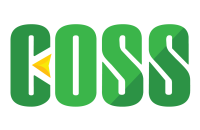About Summer Code
WTH is this?
COSS and a number of companies are hiring students to code in open source projects.
And it works exactly how?
Here it is in a nutshell: The hacker first chooses an interesting open source project to which he or she is willing to contribute and preferably consults a representative of the project about a suitable programming task. Based on this, the hacker will then create a project for him- or herself, creates a project plan and sends an application. A panel consisting of representatives of FILOSI universities and institutes will pick the finalists in mid-March; see the criteria. Finalists can correct and polish their plans and make a thorough and short presentation of them for the finals held in late March, where the representatives of funders will pick the chosen hackers, who’ll be announced shortly after the event. The summer is reserved for hacking and documenting and the fee is paid monthly if the project is advancing as planned.
Why is COSS doing this?
COSS wants to support Finnish participation in good OSS projects and strengthen the OSS know-how that companies need. The students as future software experts are a good target group.
Why are companies doing this?
They too want to promote open source knowledge and students as future programmers and employees are an interesting target.
Are the participating projects chosen in advance?
No. Applications for a well-known and established project are strongly encouraged, and the funders might have some fields of interest in which participation might be considered an asset. Still, the applications DO NOT need to be in those areas of interest.
What’s the role of the open source project in Summer Code?
The ideal scenario consists of a representative of the project guiding, mentoring and overseeing both the quality and advancement of the work. The lack of such a representative isn’t a disqualifying attribute for either applying or being chosen as a Summercoder.
Do the projects need to use the code produced?
Not necessarily, but it’s a clear qualifying asset and has to be an accomplishable aim.
Do I get paid even if the project doesn’t implement my code?
Yes, as long as the project’s objectives are considered reached.
Eligibility
Who can apply?
Students of a Finnish university or university of applied science who aren’t employed full-time.
Applying for Summer Code
So how do I apply?
By sending an application according to the instructions. .
Can I send multiple applications? Can I withdraw my old / new application?
You can participate with only one application. You can send a newer version, which we’ll use unless you later revoke it.
What should the application look like?
The application should contain the following information:
1. Description of the project and your planned summer job
- A brief description of the project in which you’d like to participate in and how you would participate if you are chosen
- A proposition of the measurable goals of the job to be done; ie. what functionality is added and in what phases the work is conducted – in other words a preliminary Summercode project plan
- Name of the project and associated URL
- Possibly the name and e-mail address of the mentor or contact person in the project
2. Applicant information
- name, e-mail address, and university
- short description of the applicant: for example, previous experience of programming, participation in open source software development and relationship to the project of intended participation
3. Language of the application
- English or Finnish, English preferred
Can we form a group and make a joint application?
Nope. Only individuals can participate.
Who will be chosen?
The selection is affected by, for example, the following criteria:
1. Applicants experience of OSS hacking
- previous, proven participation and commitment
2. The chosen OSS project of the applicant
- how well-known, interesting and noteworthy the project is
- a mentor or contact person, who is willing to comment and assess the performance of the coder
- that the project is released under an OSI approved license
3. The quality of the proposed task and the project plan
- the credibility and practicality of the plan
- the usefulness of the code developed for the project and users of the software
I’m already participating in project X. Can I continue contributing to it?
Yes, if you are suitable otherwise. Mention your participation in your application. You need to commit new code and release it, though. Old stuff won’t do.
The work
When is the work done?
Mainly in June through August.
Can I come to the COSS office and work there?
No, you can’t. We greatly encourage you to work at home with your own computer and software.
Is there a contract to be signed, and with whom?
A contract for consultancy services is made, under which a taxable fee is paid. The contract is made with COSS’s hosting organisation, Technology Centre Hermia Ltd.
The work amount and fee are…?
Ordinarily the project should be approximately three months in duration and the fee is about 1,800 euros of taxable income.
When do I get paid?
The fee is paid once a month, assuming the work proceeds as planned. A small amount of the fee is withheld and paid after the final report is approved.
Miscellaneous
Do I have to submit all of my code to SourceForge or similar?
Yes.
Can I program in language X/Y/Z?
Yes, you can pick it yourself, as long as you tell us what language you’re using.
Who’ll hold the copyright of the code I’ve written?
You yourself. You need to release it under an OSI-approved open source license.
